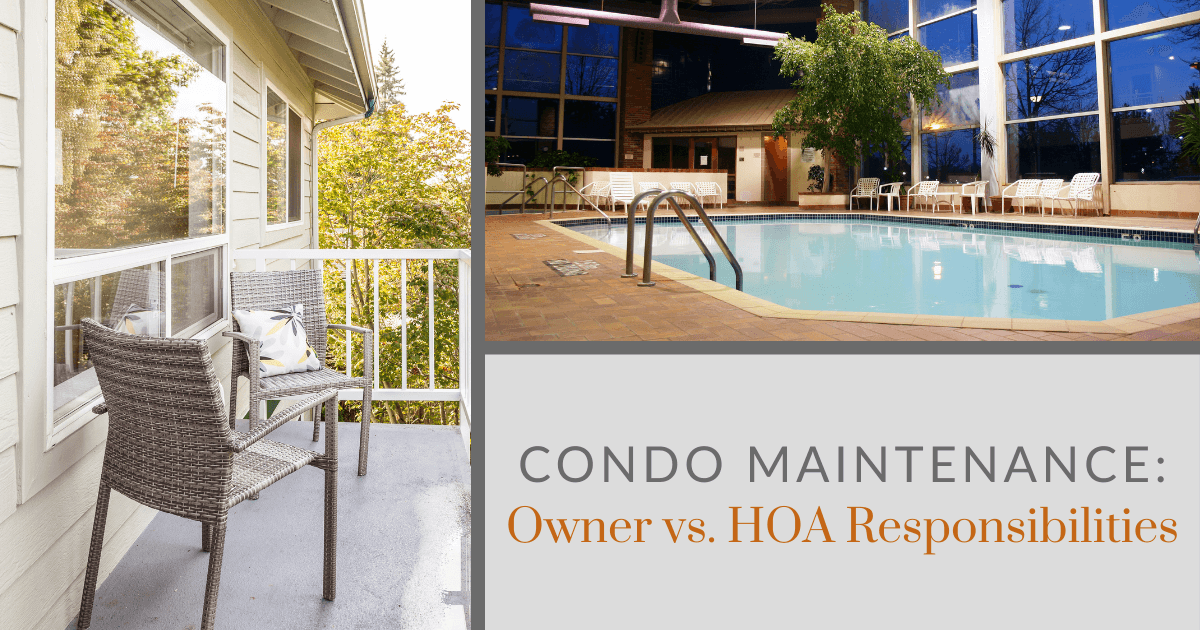Exactly How to Resolve Problems in an HOA Condo Setting
Exactly How to Resolve Problems in an HOA Condo Setting
Blog Article
The Duty of an HOA in Establishing and Enforcing Neighborhood Guidelines for Homeowners
The duty of a Homeowners Organization (HOA) in implementing and developing neighborhood standards is essential to preserving a natural and orderly residential environment. By formulating clear rules that govern facets such as residential property upkeep and community conduct, the HOA not just establishes requirements for locals however also fosters a sense of belonging and accountability.
Understanding Homeowners Organizations
Homeowners organizations (HOAs) work as governing bodies for residential areas, playing an essential role in maintaining property worths and promoting a sense of area. Normally formed by programmers, HOAs are made up of property owners within a designated location who elect a board to manage the association's activities. The primary features of an HOA include applying neighborhood rules, taking care of typical locations, and organizing area events.
HOAs run under a set of controling papers, including limitations, covenants, and conditions (CC&R s), which describe the rights and obligations of homeowners. These laws intend to ensure that buildings are kept to a specific requirement, consequently safeguarding the visual charm and overall worth of the area. In addition, HOAs typically accumulate charges from property owners to money upkeep, landscaping, and other social work.
The visibility of an HOA can substantially affect the living experience within a neighborhood (hoa condo). While some citizens appreciate the structured atmosphere and features given, others might locate certain policies restrictive. Stabilizing the passions of all home owners is essential for an HOA to function successfully, ensuring that it serves its intended purpose of enhancing community living while appreciating private house owner legal rights
Establishing Neighborhood Standards

To start, an HOA should perform surveys or hold conferences that enable homeowners to articulate their concerns and recommendations. This participatory procedure cultivates a sense of ownership and boosts compliance. Next, the HOA board need to assess the feedback to recognize usual styles and top priorities that necessitate official incorporation in the guidelines.
It is also necessary to guarantee that the guidelines are clear, concise, and easily understood. Uncertainties can cause misconceptions and problems, threatening the function of the guidelines. The guidelines should be thorough, covering numerous elements of community living, including home upkeep, noise degrees, and usage of common locations.
Enforcement of Guidelines
Effective enforcement of area policies is important for maintaining order and ensuring that all homeowners abide by the developed standards. An HOA must apply a structured approach to implement these policies, which often includes a combination of monitoring, communication, and penalties for non-compliance.
First, routine examinations and community patrols can help identify offenses, guaranteeing that guidelines are constantly applied across the area. This positive surveillance allows the HOA to deal with problems before they escalate, cultivating a sense of liability among citizens.
2nd, clear communication is crucial. Locals need to be informed of the regulations and the procedures for reporting site here infractions. An open line of interaction urges locals to voice worries and look for clarification on guidelines, which can boost conformity.

Lastly, when violations occur, the HOA has to apply effects as detailed in the regulating files. By effectively implementing policies, an HOA can cultivate a harmonious living atmosphere that mirrors the cumulative worths of its locals.
Advantages of HOA Regulations
Countless benefits develop from the implementation of HOA policies, which offer to enhance the lifestyle within a community. One key benefit is the maintenance of residential property worths. By imposing standards for visual appeals and upkeep, HOAs make certain that homes and common locations remain eye-catching, cultivating a desirable living environment that can bring about boosted home values over time.
In addition, HOA regulations promote uniformity and uniformity within the community. This coherence in layout and upkeep aids to create a feeling of belonging amongst locals, adding to community satisfaction and a positive environment. Established standards promote conflict resolution among next-door neighbors by providing clear expectations and procedures for actions, thus lessening disagreements.
Another considerable advantage is the stipulation of common amenities and services. Several HOAs manage neighborhood facilities such as parks, swimming pools, and clubs, which boost entertainment possibilities for residents. These facilities not just boost the quality of life however also encourage social interaction.
Eventually, the guidelines stated by an HOA cultivate a well-organized, harmonious area, ensuring that residents take pleasure in a high criterion of living while cultivating an encouraging setting for all home owners.
Usual Difficulties Encountered by HOAs
Amidst the advantages that house owners associations (HOAs) can provide, they additionally come across a variety of obstacles that can impede their effectiveness. Lots of property owners might not take part in meetings or area activities, leading to a separate in between the HOA board and citizens.
Conflicts can emerge when residents feel that enforcement is irregular or prejudiced, potentially leading to problems within the community. Additionally, HOAs commonly encounter financial restrictions, which can restrict their capacity to keep common areas or fund neighborhood jobs.
Furthermore, navigating legal complexities can be intimidating for HOAs. They must make certain conformity with state regulations while handling their very own controling records, which can view it now be a resource of complication. Finally, progressing and transforming demographics neighborhood needs need HOAs to adapt their guidelines, often meeting resistance from long-standing homeowners that are accustomed to typical standards. Attending to these difficulties is essential for cultivating a thriving and unified neighborhood.
Final Thought

By formulating clear policies that govern elements such as property upkeep and area conduct, the HOA not only sets requirements for residents however additionally fosters a sense of belonging and liability.Homeowners associations (HOAs) serve as regulating bodies for household communities, playing a critical role in maintaining residential property worths and fostering a sense of area. Several property owners may not take part in conferences or area tasks, leading to a disconnect between the HOA board and residents. Altering demographics and progressing community needs require HOAs to adapt their guidelines, typically satisfying resistance from long-lasting residents that are accustomed to traditional norms. With the advancement of clear laws and regular enforcement, HOAs advertise property maintenance, community pride, and trust amongst homeowners.
Report this page